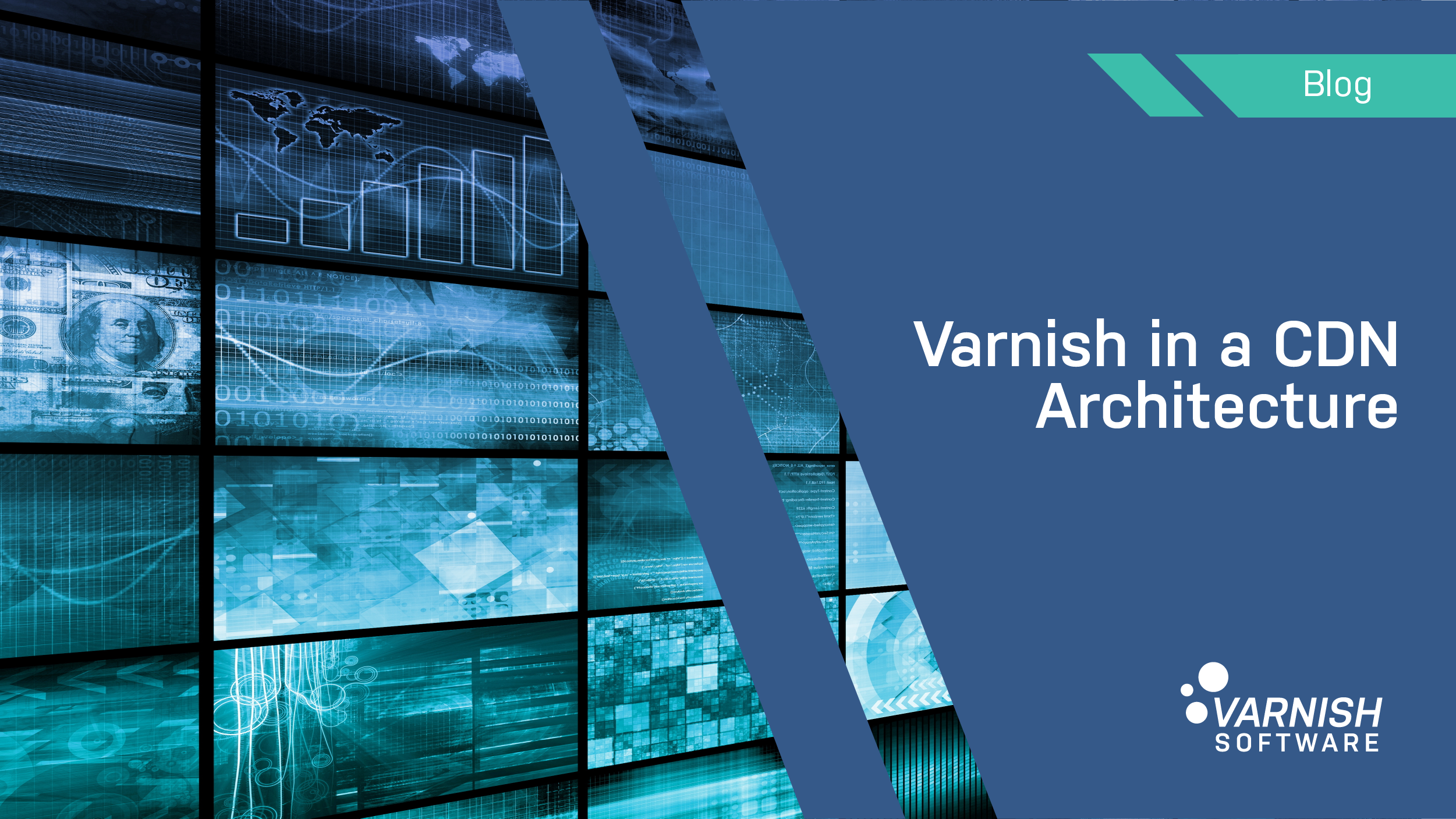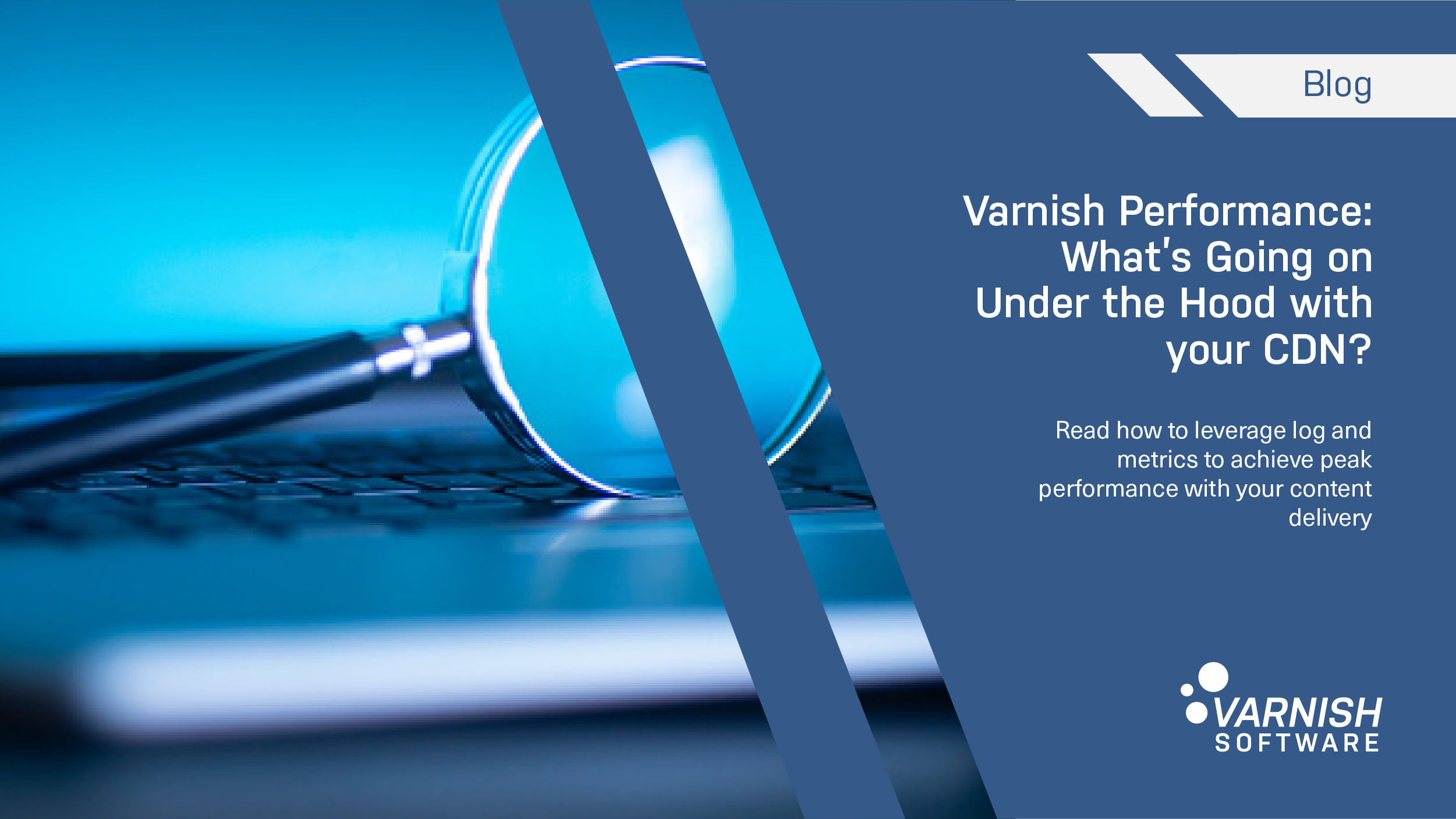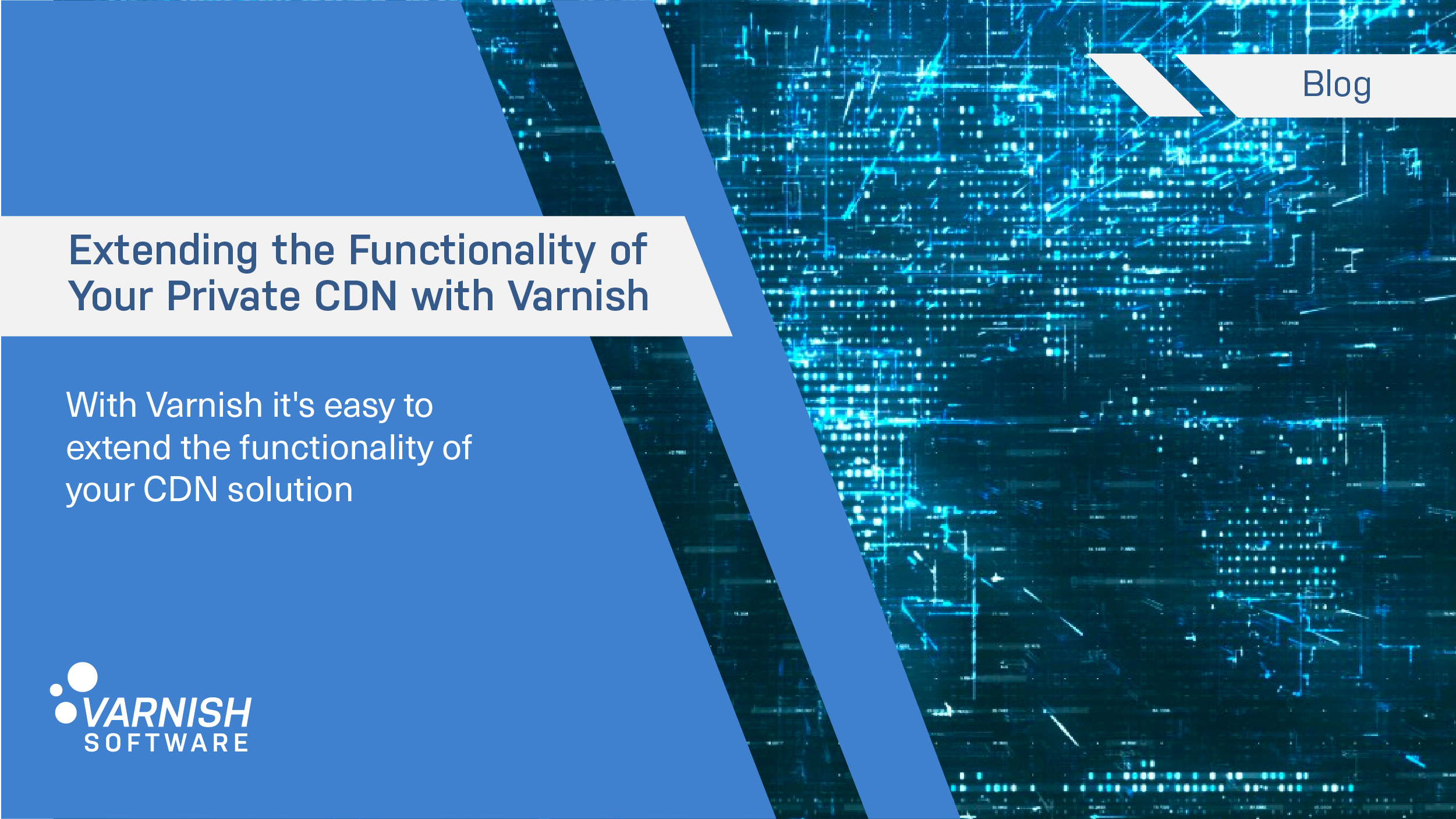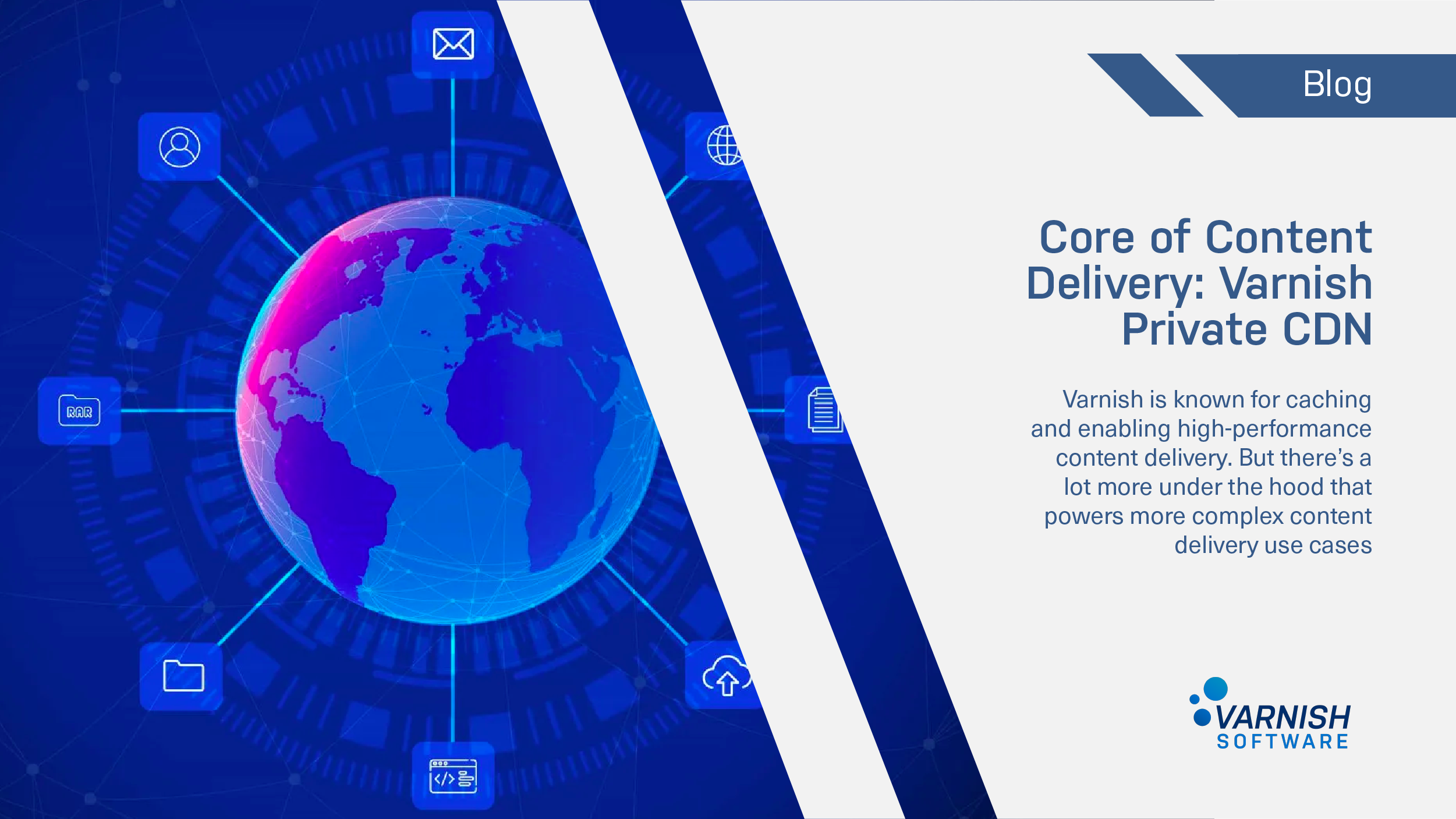Follow The Rabbit
CDN Under the Hood
Latest Articles
- Ian Vaughan
- November 3, 2021
In this blog series, we’ve been looking inside Varnish to see what’s under the hood. There’s a lot more going on than...
- Ian Vaughan
- October 26, 2021
While we have spent some time explaining all the surprising things that the Varnish private CDN solution contains under...
- Ian Vaughan
- October 20, 2021
Content delivery networks (CDNs) can be much more than just the workhorse of content delivery. Sure, that’s what they...
- Jonatan Lindgren
- October 13, 2021
Content can’t be king without the CDN In mid-2021 a handful of catastrophic commercial CDN outages made the world take...
- Ian Vaughan
- October 6, 2021
Many Varnish users experience Varnish only as an HTTP reverse proxy. Widely adopted to be the middle man sitting...
SUBSCRIBE TO OUR BLOG
SEARCH OUR BLOG
Explore articles from Varnish experts on web performance, advanced caching techniques, CDN optimization and more, plus all the latest tips and insights for enhancing your content delivery operations.





